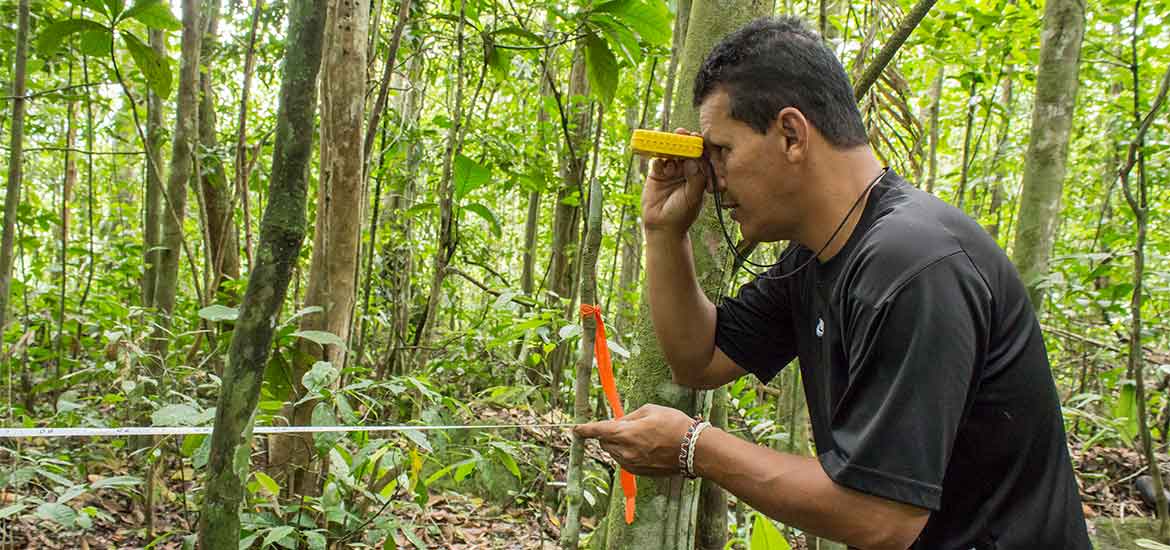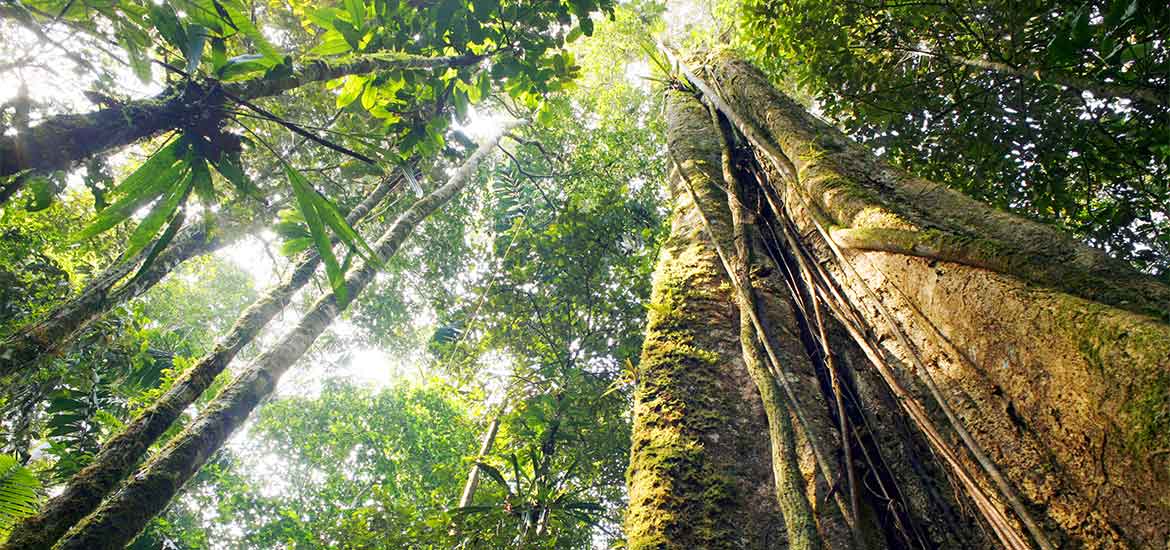FORESTS AND BIODIVERSITY IN PRODUCTIVE LANDSCAPES UNIT


Tropical forests are the most diverse terrestrial ecosystems on the planet. In addition, they constitute the main source of biodiversity in a landscape and radiate it to other land uses, which contributes to its sustainability.
Also, biodiversity is the engine that generates the services that ecosystems provide us. It is an essential element for food security, human health, the supply of air and drinking water, the subsistence of peoples, their economic development and their culture. Therefore, biodiversity conservation is essential for the achievement of the UN Millennium Development Goals, including the reduction of poverty.
Forests and their biodiversity - and therefore the services they provide - are affected by human activity, mainly deforestation, habitat fragmentation, forest fires, hunting, illegal logging and climate change. Some data that reinforce this point are:
- Studies at a global level show a significant increase in deforestation in the 19th and 20th centuries, mainly in tropical regions. In the period 2000-2010, a loss of seven million hectares of forest per year is estimated in the tropics alone (FAO, 2016).
- In Central America, a significant warming is expected for the period 2021-2050 (Imbach et al. 2018) and a reduction in precipitation, which would cause a decrease in the availability of water in the future.
- Droughts in Central America can be observed in areas where they have not historically occurred and be more intense in those where they frequently occur. As a result, an increase in the quantity and intensity of fires and certain forest pests is expected, with highly negative consequences for forests in the dry life zone and particularly for pine forests in countries such as Honduras, Guatemala and Nicaragua.
Regarding the issue of management, conservation and restoration of tropical forests, through the Forests and Biodiversity in Productive Landscapes Unit (BBPP), at CATIE we are internationally recognized as a leading institution for our contribution to the scientific knowledge of tropical forests. their biodiversity and the ecosystem services they provide, in a context of landscapes and societies resilient to climate change and natural disasters. Our contributions to the region can be summarized as follows:
- The medium and long-term research for development of the BBPP Unit on the effects of human activity in tropical forests is widely disseminated and used to improve forest management and mitigate impacts.
- The promotion of sustainable forest management and the restoration of forests and landscapes in Latin America and the Caribbean has been key in the development of the region, a clear example being community forest management in Guatemala.
- Capacity strengthening through postgraduate education processes at the master's and doctoral levels, and participation in a wide range of training and projection activities, which we have achieved by collaborating extensively with partners inside and outside CATIE.
The staff of CATIE's Forests and Biodiversity in Productive Landscapes Unit has extensive work experience in the region and has specialists in applied forest ecology, statistical modeling of forest dynamics, sustainable forest management, and environmental economics.
Success story
At the level of Latin America and the Caribbean, we have one of the most robust and complete databases on the dynamics of tropical humid forests, which contains information from medium and long-term studies that include some 180 plots distributed in primary and secondary forests, with areas that vary from 0.2 ha to 2 ha and cover about 114 ha of natural forest.
The status and growth of thousands of trees, lianas, palms and tree ferns have been monitored within the plots for 35 years, using rigorous measurement protocols. One of the aspects to be highlighted is the quality of species identification, the result of work with highly qualified botanists and parataxonomists.
Likewise, the studies deal with impacts on the state, biodiversity and ecosystem services of forests caused by landscape fragmentation, timber harvesting, forest restoration in abandoned agricultural areas, and climate change.
In addition, it is important to mention that all the knowledge generated by our research for development has been disseminated through the production of a large number of technical and scientific publications, participation in national and international scientific forums and has led to capacity strengthening of forest managers in the region and the reformulation of policies and norms in forest legistature aimed at improving the management of tropical forests.
Cited literature
Imbach, P., Chou, S.C., Lyra, A., Rodrigues, D., Rodriguez, D., Latinovic, D., Siqueira, G., Silva, A., Garofolo, L. y Georgiou, S. 2018. Future climate change scenarios in Central America at high spatial resolution. PLoS One 13(4). DOI: 10.1371/journal.pone.0193570
FAO (Organización de las Naciones Unidas para la Alimentación y la Agricultura). 2016. El Estado de los bosques del mundo 2016. Los bosques y la agricultura: desafíos y oportunidades en relación con el uso de la tierra. Roma, Italia, 119 p.
Contacts:
Alejandra Martínez
Head of the Unit
amartinez@catie.ac.cr
